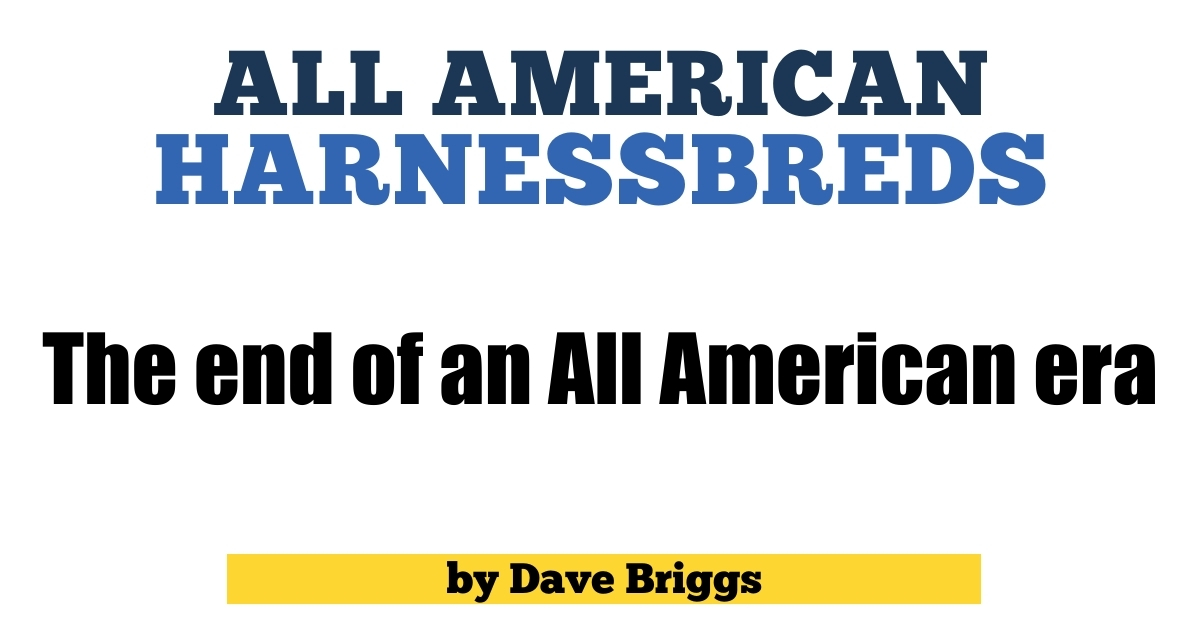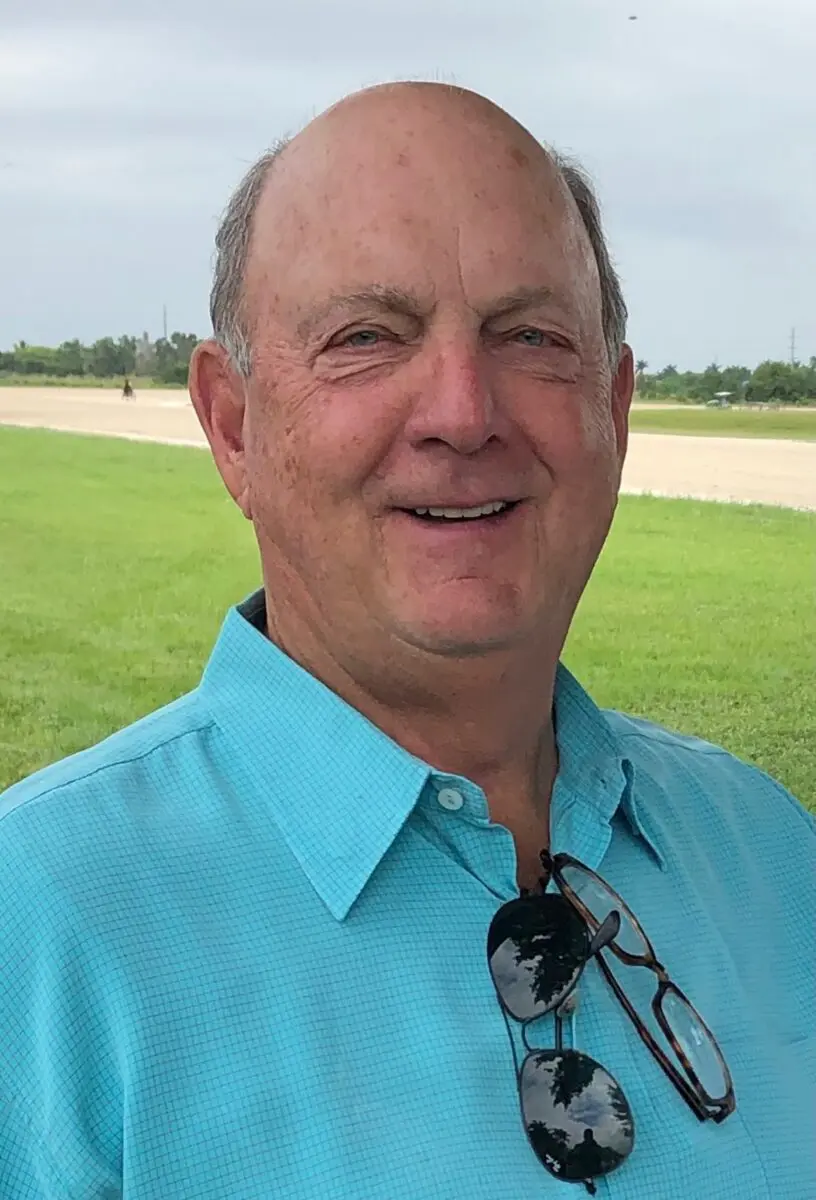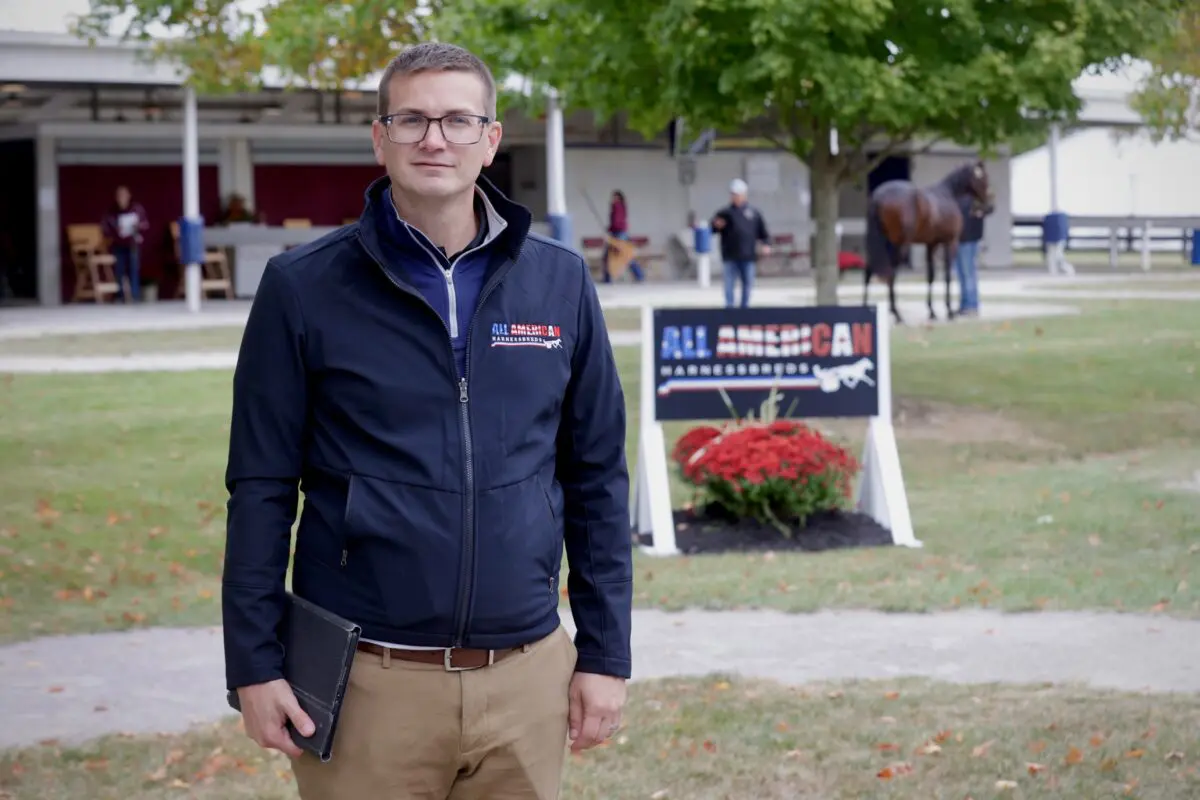The end of an All Americanera
All American Harnessbreds, the Maryland farm that produced 2021 Horse of the Year Test Of Faith and this year’s Jug winner Captain Albano, is leaving the standardbred breeding business at the end of 2025.
by Dave Briggs
After nearly 40 years in business, All American Harnessbreds is leaving the standardbred breeding game at the pinnacle of its success. The farm’s general manager, Rob Tribbett, said it simply was the right time to make the exit due to the pending retirement of key farm staff.
“It’s different than some other dispersals where someone passed away or it slowly went down,” Tribbett said. “We are probably having our best year ever on the track. So, it’s bittersweet – we love the business and we love the people and the horses, but it’s just time to do it.”
All American owner, Fred Hertrich III, said the four-phase dispersal plan was set in motion when longtime farm manager Beverly Webb and her second in command, Debbie Pinder, said they were both interested in retirement.
“Beverly Webb has been with me forever,” Hertrich said. “She really runs the farm… She came to me and said, ‘Fred, I want to come up with a game plan here.’ Then, her assistant, who has also been with me for 30 years, she’s of the same ilk and does nights for us and foals mares and she’s in her 60s and that’s not the easiest work.
“And Rob has kind of a full plate, so this will relieve him of that as well, because he’s been an integral part in everything I’ve done. He’s like a third son because his father [Charlie Tribbett] was my private trainer in the standardbred business.”
Hertrich said his two sons enjoy the horse business, but not enough to make it a full-time commitment.
“[Closing the farm] was going to occur sometime because my sons are really not interested in being in the horse business, with the effort you have to put in,” Hertrich said. “They have day jobs.
“We’ve spent a lot of time doing what we do, to be as successful as we have, and you just can’t do it two hours a week and they understand that.”
All American Harnessbreds was founded in 1985 in the Maryland eastern shore community of Federalsburg. But, it all started with another kind of horsepower. In 1963, Hertrich’s father opened the family’s first car dealership in Seaford, DE. The family still owns what is now Hertrich Buick GMC of Seaford, but is now involved in 24 dealerships in all, along with 19 brands, and 12 Collision Centers across four states: Delaware, Maryland, New Jersey, and Pennsylvania.
“I have one car dealership in New Jersey and it was called All American Chevrolet,” said Hertrich. “The [farm] name came from that. We were trying to [establish] what kind of athlete we wanted to produce. All Americans was pretty much just what we were looking to produce.”
NEWS COMES ON THE HEELS OF JUG WIN
Tribbett first shared the news of All American’s phased closure with HRU the morning after Captain Albano, bred by Hertrich, won the Little Brown Jug.
“We’re currently the fourth-leading breeder in earnings this year and that doesn’t include Nijinsky [bred by Jeffrey Snyder] because we bought the mare carrying him, but we foaled and sold him,” Tribbett said. “But we have [a strong connection to] two of the top three pacing colts of the year with Captain Albano and Nijinsky – a North America Cup and a Jug. We hadn’t won either of those races before.
“Buy A Round was second in the Hambletonian Oaks and she’s made about $700,000.
“Cant See Me was third in the She’s A Great Lady final on Saturday at Mohawk. She was an elim winner.
“Act Fast is a tough free-for-aller as a 4-year-old for Ron Burke.
“So, it’s been a great year and it just made the timing [to liquidate] feel right because we feel like we’re going out on top.”
Horses bred by Hertrich have earned over $4.1 million this year. He ranks behind perennial leaders Hanover Shoe Farms ($26.2 million), Winbak Farm ($15.6 million) and Crawford Farms ($6.9 million) in the breeder rankings by earnings. Hertrich said he’s proud All American is going out after one of its most successful years in the business.
“Watching Captain Albano win the Jug or, you know, being in Kentucky last year and back-to-back Buy A Round and Captain Albano won two big races, those are thrills that give credibility to what you attempted to do,” he said.
“The biggest takeaway is that [closing down operations] just works for our key people and they really designed the plan for the liquidation, as far as it being an orderly and correct way to do it, without sacrificing the health of any animal or making them different than they would have been if we were still operating and still in business. In fact, each animal will probably get more individual care next year than this year.”
FOUR-PHASE LIQUIDATION
Tribbett said All American will sell its assets in four phases and exit the standardbred breeding market at the end of 2025.
He said All American yearlings will sell this year both at Lexington and Harrisburg as normal. The in-foal mares will be sold in the mixed sale portion of this year’s Standardbred Horse Sales Company auction in Harrisburg, PA, along with the majority of the farm’s stallion share interests.
“Then, in 2025, we’re holding over our weanlings of this year to sell them as yearlings as we normally would next year,” Tribbett said. “Then, next year at Harrisburg, the remaining barren mares, barren of ’24, will be sold at the mixed sale in ’25 along with the balance of the stallion shares that we’re holding over to breed those mares next year.
The objective is to have a complete dispersal of the farm by the first week of November, 2025.
Tribbett said the dispersal will be a great opportunity for some other breeders to land quality stock.
“I think that’s the most exciting part,” Tribbett said. “We have, over the years, developed methods of buying mares and finding those mares… We’re very selective in what we bring in, but I think our methods of doing that have allowed us to curate a band of mares that have created horses like Captain Albano, Nijinsky, Test Of Faith, Stag Party.
“None of those were six-figure mares but I think some of our methods of trying to identify those mares was important… Not only are those mares going to be sold, but also there are plenty of young mares that we’ve added in recent years that may only have one or two foals. I think in two or three years they might be the dam of a Jug winner or the Horse of the Year, because we really don’t have a huge band of mares. All these mares were carefully selected by Fred, Bev and myself to be mares that we think can produce great racehorses, because that’s always our goal. It’s not just about sales, but it’s about making horses like Test of Faith.
“We’ve done that in lots of different ways. It’s not just that they were all bought at sales – they were bought privately or online.”
“There are lots of younger mares that we’re excited about and we’re interested to see where they end up. I think there’s going to be an opportunity for some of the new players in the game and some of the players who have arrived in jurisdictions to get their hands on mares that we’ve kind of already done the hard work on. We’ve selected those and bred them in ways that we think the future is very high.
“We’re also offering in this group Buy A Round herself… She’ll race in Lexington and then in the Breeders Crown before she [is sold]. Then, the complete, no reserve, wind down of the assets will occur next November.”
Also being sold this fall is Nijinsky’s dam, Pirouette Hanover. She foaled a Captaintreacherous colt in June and was not bred back.
THE MARKET HAS NEVER BEEN BETTER
As for the industry itself, both Hertrich and Tribbett said they are bullish on it.
“This was the time to exit because, selfishly, the market has never been better, the industry in my estimation has never been better,” Hertrich said. “So, as a result, it’s a great time to pull the plug.”
“We think the standardbred business is super healthy,” Tribbett said. “Obviously, the Freehold [Raceway closure] news was disappointing, but if you look at it across all the jurisdictions, I think the money in New Jersey has been reaffirmed. Ohio is rocking and Indiana. Kentucky continues to rise and Ontario and New York, Pennsylvania.
“I think the standardbred business is as healthy as it’s been in quite a long time. So that was definitely not a factor. We’re very optimistic heading into the yearling sales because of the strength we’ve seen everywhere in the standardbred business. It is a great time to own a standardbred racehorse.”
Tribbett said Hertrich will remain in the thoroughbred business in Kentucky.
“Part of it, as well, is that running two large farms, 650 miles away from each other, is challenging,” Tribbett said. “So, that’s certainly part of the equation. Also, our farm in Maryland is a challenging place to do a lot of the things we have to do with staff and vendors, so that certainly played a role.”
Both Tribbett and Hertrich said they will remain in the standardbred business in some capacity.
“I’m still going to buy a racehorse for friends of mine or partners like John Fielding,” Hertrich said. “I’m still going to be involved, but we’re not going to be involved [in breeding] because it’s so difficult to do it well and compete, because we don’t go buy the $300,000 fillies or mares. There’s a distinct way we have bought all our mares that are in our broodmare band. To duplicate that, would be to put a whole organization back together again, so the timing just feels right.
“If I was 39, I wouldn’t be having this conversation.”
“We’re not going to be ignoring the [standardbred] business,” Tribbett added. “It’s just that the breeding business takes a large level of capital and time, so that’s kind of part of the decision.”


















